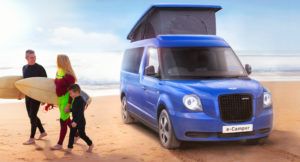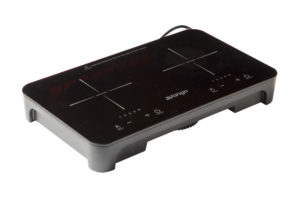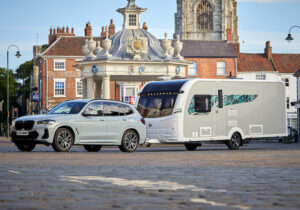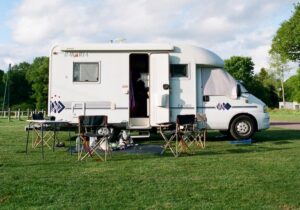 Nick’s News – Nick Harding is an expert in all things motorhomes, caravans and camping. Each week, Nick explores products, locations, holiday ideas and essential community information on our behalf – It’s a Hard-ing Life for Nick, but here is what he found this week.
Nick’s News – Nick Harding is an expert in all things motorhomes, caravans and camping. Each week, Nick explores products, locations, holiday ideas and essential community information on our behalf – It’s a Hard-ing Life for Nick, but here is what he found this week.
My week
Things are hotting up across the leisure vehicle sector. I’m off to see what’s new from Elddis/Erwin Hymer Group this week, then looking in at the latest launches from Adria and Coachman over the next two weeks. With news that Bailey is to unveil its next-generation Unicorn caravans, I’m getting the feeling things really are beginning to return to some kind of normality.
In the news
No show for the NEC in October
In a funny way, I’d like to congratulate our National Caravan Council for taking the decision to put off October’s Motorhome and Caravan Show. Against a background of high interest in touring caravans and motorhomes and, frankly, the opportunity to sell even more product, the UK industry’s trade body has put the welfare of people ahead of commercial interests.
Instead, efforts will focus on the subsequent national showcase, the Caravan, Camping and Motorhome Show next February at the same venue – Birmingham’s NEC.
It’s a dreadful place, the NEC. I know I’m not the only one to come away from events there having gathered up a cold, sore throat or worse in the past. The good news is, it’s started using Enhanced Venue Sanitisation – more cleaning, more warning signs, more sanitisers and staffed toilets. I’m sure we can wait a bit longer and I look forward to caching up next February.
Want to work on a campsite? Join the Club…
I see the Caravan and Motorhome Club is looking to recruit people to come and work on its site network. It can be very rewarding, but you should be warned, it’s also no picnic. I don’t speak from direct experience, but have certainly heard enough tales of hard graft.
As consumers, we do tend to get sucked into the idea of sitting on a lawnmower, cutting the grass and just chatting to campers while the sun shines… perhaps not caring to think about the myriad of responsibilities carried out by site staff.
By far the biggest majority of folk using campsites are decent, but it only takes the odd one to spoil things for others, though. Frankly, I do think there’s a sitcom waiting to be written there! Who knows, it could even be based on someone’s experience as a rookie assistant manager.
Caravan crush
Knaus Deseo – out of the ordinary
It’s no concept caravan this, I was there when the Deseo was first unveiled by Germany’s Knaus, back in the mid-2000s, and it still bucks plenty of trends today. Its short, boxy, twin axle, minimal-windows design still sets it out from the rest. As does its full-size tailgate at the back – ideal for taking on heavy loads of anything up to motorbikes.
It’s all rather more practical than you might expect, too, with everything from its drop-down double bed to a proper bench toilet. Proper? Yes, I do consider these older Thetford toilets preferable to swivel-bowl variants, for one key reason – hygiene. They’re easier to keep clean because you don’t have to – literally – grub around the back of them. Just a thought, but I think I’ll leave it there.
Three good: Build quality, at least 300kg payload and it’s different
Two bad: Price, plus you’ll want to add options
Perfect for… Carrying kit, as well as offering accommodation for four
Also consider: Trip Buddy Anywhere
Gadget envy
Clean air – let’s act
In current times, ensuring a good supply of fresh, clean air means more than ever before. So, what can you do to make sure you’re getting the right stuff when you’re out and about in your caravan or motorhome? You could add an air conditioner, of course, but prices here do tend to run into the low thousands.
So, what are the alternatives? Well, opening windows and vents wherever and whenever possible is a great start. It might even be enough to make you decide you don’t need to do anything else.
Or you might decide you want a 12V fan fitting that can be used as an extractor. If so, you could ask your local dealer to fit a Thule Omnivent, or the Fiamma equivalent, called the TurboVent.
There’s also the MaxxFan, which is a rather interesting looking item that’s recently been introduced to the UK by specialist leisure vehicle accessories supplier and fitter, RoadPro. For easy fitting, it can actually take the place of a 400mm x 400mm rooflight and even comes with a remote control.







